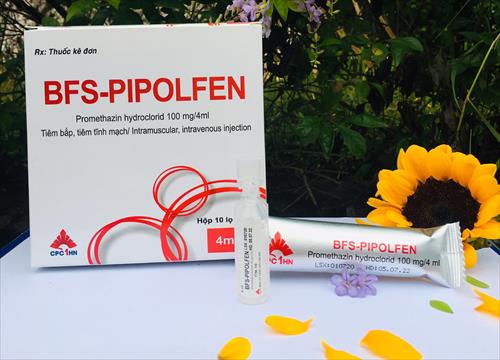Composition
Promethazine hydrochloride 100mg/4ml
Dosage Form
Solution for injection
Indication
Promethazine Hydrochloride Injection is indicated for the following conditions:
1. Amelioration of allergic reactions to blood or plasma.
2. In anaphylaxis as an adjunct to epinephrine and other standard measures after the acute
symptoms have been controlled.
3. For other uncomplicated allergic conditions of the immediate type when oral therapy is
impossible or contraindicated.
4. For sedation and relief of apprehension and to produce light sleep from which the patient can be
easily aroused.
5. Active treatment of motion sickness.
6. Prevention and control of nausea and vomiting associated with certain types of anaesthesia and
surgery.
7. As an adjunct to analgesics for the control of postoperative pain.
8. Preoperative, postoperative, and obstetric (during labour) sedation.
9. Intravenously in special surgical situations, such as repeated bronchoscopy, ophthalmic surgery,
and poor-risk patients, with reduced amounts of meperidine or other narcotic analgesic as an
adjunct to anaesthesia and analgesia
Dosage Adminstration
Route of administration: Intramuscular or intravenous (after dilution)
The usual dose is 25 - 50 mg by deep intramuscular injection, or, in emergency, by slow intravenous injection after dilution of the 2.5% solution to 10 times its volume with water for injections immediately before use.
Maximum parenteral dose 100 mg.
Elderly:No specific dosage recommendations.
Children:6.25 - 12.5 mg for children from 5 - 10 years by deep intramuscular injection. Not for use in children under 2 years of age


